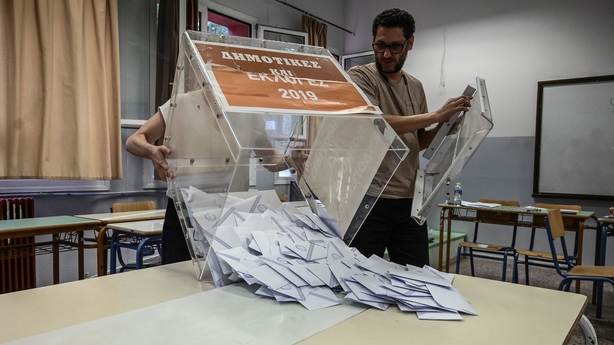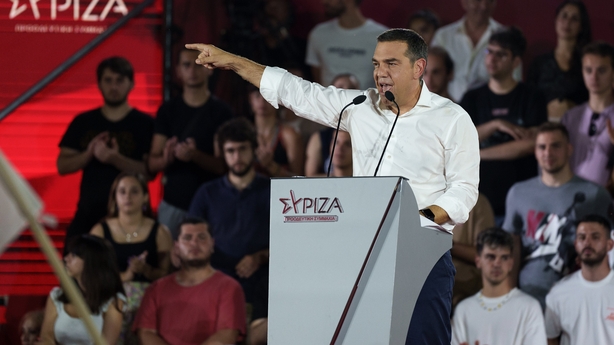After winning a repeat election, Greek conservative leader Kyriakos Mitsotakis said that Greek people gave him a mandate to push forward with much-needed reforms.
Official results showed his centre-right New Democracy party winning 40.4% of the vote and securing a clear majority with 157 seats in the 300-seat parliament.
Speaking to cheering crowds, Mr Mitsotakis promised robust growth, which would allow wage increases, and to reform the health system.
Mr Mitsotakis, 55, who steered Greece from the coronavirus pandemic back to two consecutive years of strong growth, had already a scored a thumping win in an election just a month ago.
But having fallen short by five seats in parliament of being able to form a single-party government, the Harvard graduate declined to form a coalition, in effect forcing 9.8 million Greek voters back to the ballot boxes.
Casting his vote earlier, Mr Mitsotakis, who hails from one of Greece's most influential political families, said the country was "voting for a second time in a few weeks to get a stable and effective government".
With a defeat for Mr Tsipras already largely a foregone outcome, the leftist could only ask voters not to give Mr Mitsotakis such a large margin that the conservatives would have free rein without checks and balances in parliament.
But in a blow to Mr Tsipras, exit polls suggest that his party scored even less than in May.

Mr Mitsotakis became prime minister in 2019, beating his predecessor on a vow to put behind a decade of economic crisis.
That election was the first in the EU nation's post-bailout era, at a time when businesses and workers were ailing under the burden of heavy taxes imposed by Syriza to build a budget surplus demanded by international creditors.
Over the next four years, tax burdens were eased, and while the Covid-19 pandemic wiped out Greece's vital tourism revenues, the country has since bounced back strongly with growth of 8.3% in 2021 and 5.9% last year.
That was helped in part by over €57 billion dished out by the government to cushion the impact of the health crisis and inflation.
Mr Mitsotakis also had licence to spend more under the EU's more relaxed pandemic-era rules.
He has played up Greece's newfound economic health in his re-election bid, saying his conservatives have cut 50 taxes while increasing national output by €29 billion and overseeing the largest infrastructure upgrades since 1975.

The message appeared to have gone down well with voters weary of Greece's debt years that were awash with job losses, rising payments and companies going bankrupt.
Aris Manopoulos, a shop owner, said he "voted for New Democracy so that the country can advance, and continue to revive economically".
Focus on economy
While Greece made headlines over a migrant shipwreck tragedy this month, the disaster has had little impact on the election campaign.
In a rare reminder of the tragedy, a protester held up a "I stand with refugees" placard behind Mr Mitsotakis as he addressed journalists after voting, but the man was quickly removed by security.

For many, the campaign focus had been squarely on the economy.
Yet although inflation remains a key concern, Mr Tsipras's call for wage hikes failed to garner momentum.
He remains for many the prime minister who nearly crashed Greece out of the euro, and the leader who reneged on a vow of abolishing austerity to sign the country on to more painful bailout terms.
Having already lost four electoral contests to Mr Mitsotakis, a fifth defeat could end up costing Mr Tsipras his top job at Syriza.
The hard-right meanwhile may be making a comeback, with three small nationalist parties possibly squeezing past the three percent threshold for getting into parliament.
One of them, Spartiates, is endorsed by the jailed former spokesman of neo-Nazi party Golden Dawn Ilias Kasidiaris.
Ahead of the vote, Mr Mitsotakis had warned against the extreme voices, saying letting them into parliament would only cause "democratic cacophony".

